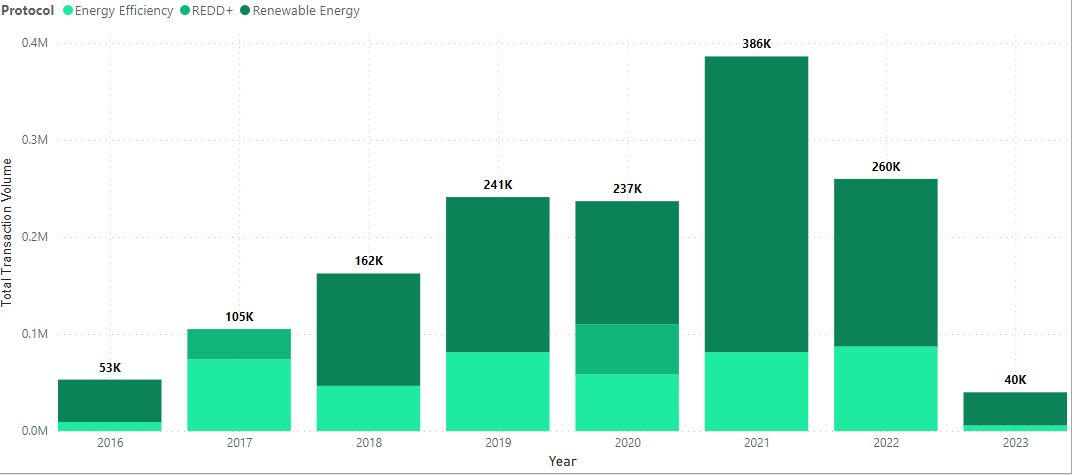
Hey there, Climate Enthusiasts! Welcome to the seventh edition of Carbon Quantified! This week, We are thrilled to present our analysis on CORSIA & Carbon Contracts for Differences (CCfD). Overview of the Seventh Edition:
In the seventh edition of our newsletter, we continue our commitment to exploring key topics that shape the sustainability market. We are also pleased to inform you that we are currently participating in the prestigious Sustainable World Conclave 2023 organized by Business World in Delhi. This influential event serves as a platform for industry leaders, experts, and stakeholders to convene and exchange ideas on sustainable practices and emerging trends. If you are interested in connecting with us, we extend a warm invitation to meet us during the conference. We look forward to engaging in meaningful discussions and exploring potential collaborations at this esteemed gathering. In this edition, we turn our focus to two significant subjects that hold transformative potential for the sustainability market: CORSIA and Carbon Contracts for Differences. These topics play a vital role in shaping the future of carbon markets and advancing sustainable practices.
CORSIA, the Carbon Offsetting and Reduction Scheme for International Aviation, represents a critical milestone in the aviation industry's efforts to address its carbon footprint. We examine the key features and implications of CORSIA, including its role in promoting emissions reduction, offsetting, and sustainable aviation practices.
Additionally, we delve into Carbon Contracts for Differences (CCfDs), an innovative financial instrument that offers opportunities for hedging against carbon price volatility and stimulating investment in low-carbon technologies. By exploring the intricacies of CCfDs, we shed light on their potential to drive sustainable growth and transition to a decarbonized economy.
Keeping pace with the ever-evolving sustainability landscape, understanding CORSIA and CCfDs is crucial for navigating carbon markets and contributing to global efforts to mitigate climate change. These topics present exciting opportunities for businesses and governments to engage in sustainable practices and drive positive environmental outcomes.
As we embark on this exploration, we encourage you to join us in discovering the potential of CORSIA and Carbon Contracts for Differences. By staying informed and actively embracing these subjects, we can collectively advance sustainable development and foster a resilient future.
In the following sections, we will deep dive into CORSIA & Carbon Contracts for Differences.



Calculus IQ: Lao & Australia - Fostering Global VCM Market through Developed-Western and Southeast Asian Collaborations
The global voluntary carbon market (VCM) is witnessing a transformative shift as collaborations between developed Western countries and Southeast Asian developing nations take center stage. One such collaboration is the partnership between the Government of the Lao PDR, the Government of Australia, and the Global Green Growth Institute (GGGI) to support carbon market development in the Lao PDR. Read more



Carbon Contracts for Differences (CCfDs): A Game-Changer in Mitigating Regulatory Risks in Climate Policies
Many national governments are actively working on or considering CCfD schemes. In this overview, we provide information on what is CCfd and existing and planned CCfD schemes in the EU and the UK. While there is high interest in CCfDs, key implementation questions remain to be answered at both the national and European levels before these schemes can be effectively implemented.

Navigating the Skies of Sustainability: CORSIA and the Quest for Carbon Neutrality in Aviation
The adoption of the Paris Agreement during the 21st Conference of the Parties (COP-21) marked a significant global effort to address the challenge of climate change. With the aim of limiting global warming to below 2 degrees Celsius and preferably 1.5 degrees Celsius, by the end of the century, countries and companies worldwide have been actively seeking solutions to reduce greenhouse gas (GHG) emissions. Among the industries identified as particularly challenging to decarbonize, aviation stands out. The aviation industry is responsible for nearly 2% of global GHG emissions, making it a significant contributor to the overall carbon footprint. Read More


![[object Object]](/lib_ubcXiSgTRmkLVyyT/k8w528b9mk1p20to.png?w=400)
